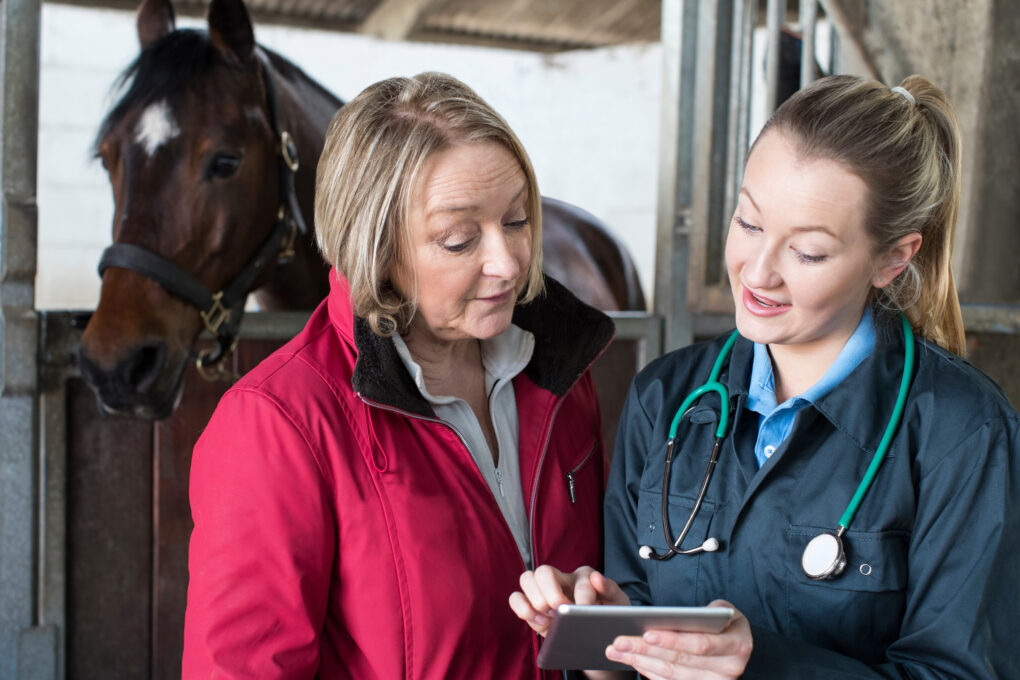Published 6 June 2022 | updated 5 June 2025
Introduction
This information has been put together following the increasing number of cases of Mpox (monkeypox) in humans and the advice that mammalian pets in households where Mpox has been confirmed should be isolated.
Mpox virus (MPXV) is an Orthopoxvirus and was first discovered in 1958 during an outbreak in an animal facility in Copenhagen, Denmark. Since its discovery, MPXV has been found to infect and induce disease in a range of mammals.
The first human case was recorded in 1970 in the Democratic Republic of the Congo (DRC), causing a disease with symptoms similar, but less severe than smallpox. Two distinct clades have been identified: the West African clade and the Congo Basin clade, also known as the Central African clade.
The spread of Mpox may occur when a person comes into close contact with an infected human, animal or materials contaminated with the virus.
- WOAH statement on novel mpox [World Organisation for Animal Health] [online] Available from: https://www.woah.org/en/woah-statement-on-novel-mpox/ [Accessed 20 September 2024]
- WHO Director-General declares mpox outbreak a public health emergency of international concern [World Health Organization] [online]. Available from: https://www.who.int/news/item/14-08-2024-who-director-general-declares-mpox-outbreak-a-public-health-emergency-of-international-concern [Accessed 20 September 2024]
- Monkeypox cases confirmed in England – latest updates. [UK Health Security Agency][online]. Available from: https://www.gov.uk/government/news/monkeypox-cases-confirmed-in-england-latest-updates [accessed 1 June 2022]
- ECDC (2022) Monkeypox multi-country outbreak. [online] Stockholm: ECDC. Available from: https://www.ecdc.europa.eu/sites/default/files/documents/Monkeypox-multi-country-outbreak.pdf [accessed 1 June 2022]
- Monkeypox. [World Health Organization] [online]. Available from: https://www.who.int/news-room/fact-sheets/detail/monkeypox [accessed 1 June 2022]
Mpox in animals
Mpox (monkeypox) is considered to be a zoonosis and various species have been identified as susceptible to the virus with rodents considered the natural reservoirs of infection. Mpox has not been detected in animals in the UK. However, the UK Health Security Agency (UKHSA) on behalf of the joint Human Animal Infections and Risk Surveillance (HAIRS) group, has published a risk assessment.
Qualitative assessment of the risk to the UK human population of monkeypox infection in a canine, feline, mustelid, lagomorph or rodent UK pet. [UK Health Security Agency] [online]. Available from: https://www.gov.uk/government/publications/hairs-risk-assessment-monkeypox/qualitative-assessment-of-the-risk-to-the-uk-human-population-of-monkeypox-infection-in-a-canine-feline-mustelid-lagomorph-or-rodent-uk-pet [Accessed 01/06/2022]
This document recommends that susceptible mammalian pets, that were in direct close contact with an infected human, should be isolated for a period equivalent to the human maximum incubation period of 21 days. Veterinary management of animal patients involves symptomatic treatment and supportive care, as required.
It should be noted that susceptibility of animals, including white rats, rabbits, golden hamsters, and guinea pigs, appears to depend on the route of inoculation and age / immune status of the animal.
There has now been a single reported case of human-to-dog transmission of Mpox:
Seang, S. et al. (2022) Evidence of human-to-dog transmission of monkeypox virus. The Lancet, https://doi.org/10.1016/S0140-6736(22)01487-8
Further details of the evidence relating to the susceptibility of different species can be found in the following published papers:
- MacNeill, A.L. et al. (2025) Poxvirus pathology and pathogenesis in agriculturally important species. Veterinary Pathology. https://doi.org/10.1177/03009858251338854
- Morgan, C.N. et al. (2024) One health investigation into Mpox and pets, United States. Emerging Infectious Diseases, 30 (10), pp.2025-2032. https://doi.org/10.3201/eid3010.240632
- One Health investigation into Mpox and pets, United States. Emerging Infectious Diseases, 30 (10). https://wwwnc.cdc.gov/eid/article/30/10/24-0632_article
- Hutson, C.L. and Damon, I.K. (2010) Monkeypox virus infections in small animal models for evaluation of anti-poxvirus agents. Viruses, 2 (12), pp. 2763-2776. https://doi.org/10.3390/v2122763
- Parker, S. and Buller, R.M. (2013) A review of experimental and natural infections of animals with monkeypox virus between 1958 and 2012. Future Virology, 8 (2), pp. 129-157. https://doi.org/10.2217%2Ffvl.12.130
- Mucker, E.M. et al. (2015) Susceptibility of marmosets (Callithrix jacchus) to monkeypox virus: a low dose prospective model for monkeypox and smallpox disease. PLoS ONE, 10 (7), https://doi.org/10.1371/journal.pone.0131742
- Silva, N.I.O. et al. (2020) Here, there, and everywhere: the wide host range and geographic distribution of zoonotic orthopoxviruses. Viruses, 13 (1), p.43. https://doi.org/10.3390/v13010043
- Factsheet: Monkeypox (2020). [Center for Food Security and Public Health] [online]. Available from: https://www.cfsph.iastate.edu/Factsheets/pdfs/monkeypox.pdf [Accessed 27 June 2022]
The World Organisation for Animal Health (OIE) have also produced a list of questions and answers on moneypox and animals:
Questions and answers on moneypox and animals. [World Organisation for Animal Health] [online]. Available from: https://www.woah.org/en/disease/monkeypox/ [accessed 6 June 2022]
Mpox – diagnosis and control
The UK government have also produced guidance on diagnostic testing and decontamination in relation to Mpox (monkeypox). Any veterinary specific advice will be added to this Spotlight when it becomes available.
- Monkeypox: diagnostic testing. [UK Health Security Agency] [online]. Available from: https://www.gov.uk/guidance/monkeypox-diagnostic-testing [accessed 6 June 2022]
- Monkeypox: guidance. [UK Health Security Agency] [online]. Available from: https://www.gov.uk/government/collections/monkeypox-guidance [accessed 6 June 2022]
- Chen, J-M. et al. (2022) Epidemiology-based analysis of the risks and elimination strategies of the monkeypox outbreak in 2022. Frontiers in Veterinary Science, 9, no. 1064766. https://doi.org/10.3389/fvets.2022.1064766
Mpox – advice to vets (and their clients)
- Advice for veterinarians (and their clients) on pets and Monkey Pox (MPX) (2022). [Animal and Plant Health Agency] [online]. Available from: https://apha.defra.gov.uk/documents/Vets-info/guidance-advice-to-vets-pets-monkeypox.pdf [Accessed 27 June 2022]
- Advice for pet owners isolating because of Monkey Pox (2022). [Animal and Plant Health Agency] [online]. Available from: https://apha.defra.gov.uk/documents/Vets-info/guidance-advice-to-pet-owners-monkeypox.pdf [Accessed 27 June 2022]
- Meister, T.L. et al. (2023) Efficient inactivation of monkeypox virus by World Health Organization-recommended hand rub formulations and alcohols. Emerging Infectious Diseases, 29 (1), pp. 189-192. https://doi.org/10.3201/eid2901.221429
- Morgan, C.N. et al. (2022) Environmental persistence of monkeypox virus on surfaces in household of person with travel-associated infection, Dallas, Texas, USA, 2021. Emerging Infectious Diseases. 28 (10), pp. 1982-1989. https://doi.org/10.3201/eid2810.221047
Mpox – epidemiology
Hoxha, A. et al. (2023) Mpox in Children and Adolescents during Multicountry Outbreak, 2022–2023. Emerging Infectious Diseases, 29 (10) pp. 2125–2129. https://doi.org/10.3201/eid2910.230516
About evidence collections
Evidence collections bring together collections of published papers on topics of interest and importance to the veterinary professions. Papers are chosen for relevance and accessibility, with the full text of articles either being available through the RCVS Knowledge library, on open access or from other publications to which a significant number of veterinary professionals are likely to have access. This means that there may be relevant evidence that is not included.
If you would like assistance in searching for further evidence on this topic you may find the following helpful EBVM Toolkit 2: Finding the best available evidence.
If you would like to suggest a paper for inclusion in one of our published evidence collections, or a topic for a future collection, please email library@rcvsknowledge.org
Next steps

Receive journal watch by email
